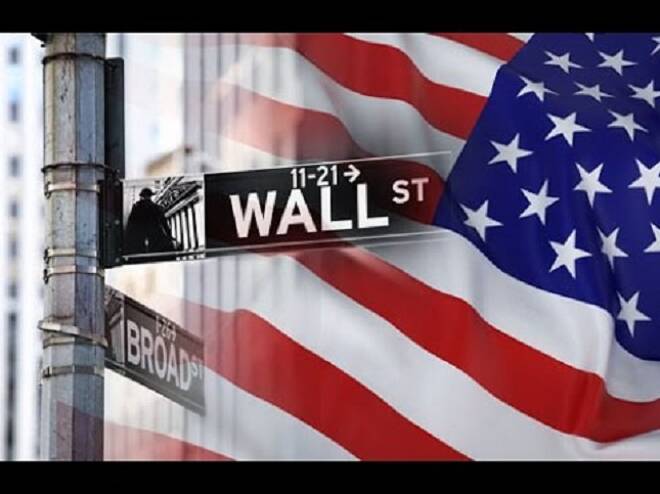Advertisement
Advertisement
‘Now for Something Completely Different’ – Earnings Season Will Be More About Words than Numbers
By:
This earnings season may be completely different than others in that rather than just react to the numbers, investors may take a pause and evaluate what companies are actually saying and what they are unable to say.
U.S. Earnings season is set to start stateside with JPMorgan Chase, Wells Fargo and Johnson & Johnson reporting numbers Tuesday morning. This first batch of data is very important because it will give investors a sense of how devastating the destruction to corporation could be from the coronavirus pandemic.
Earnings Growth to Decline
Analysts expect S&P 500 earnings growth to decline 10.2% in the first quarter year-over-year, according to Refintiv. Due to the unprecedented uncertainty from the coronavirus, there is also an unusually wide range of guesses out there also. Refintiv also expects second quarter earnings to decline by 22%, and by another 10.6% in the third quarter.
For the first quarter, 88 negative earnings pre-announcements have been issued by S&P 500 corporations, according to Refinitiv. A plethora of major corporations have already withdrawn their full-year guidance.
More than 70 S&P 500 companies have withdrawn guidance and more expected to join them. This earnings season may be completely different than others in that rather than just react to the numbers, investors may take a pause and evaluate what companies are actually saying and what they are unable to say.
COVID-19 Expected to Deliver Big Blow to Major Sectors
Financial companies are expected to see a 21% decline in the first quarter profits, while consumer discretionary companies are expected to decline by 30%, according to I/B/E data. The worst sector is expected to be energy, down 50%, followed by industrials, down 31%.
Energy companies with high debt are seen as vulnerable, as are companies in travel and leisure and some retailers. “Not every company is going to survive this downturn and so trying to sort out which ones are likely to survive and which ones will thrive when this is over is going to be a challenge for investors,” Ed Keon, chief investment strategist at QMA said.
Nothing is Certain … There Will Be Bad Guesses
Analysts have said the market may look past some of the earnings numbers, but the company comments and lack of ability to forecast could be troubling, according to CNBC.
Peter Boockvar, chief investment strategist at Bleakley Advisory Group, said companies, like Johnson & Johnson and Coca-Cola have solid balance sheets, but other companies could send up red flags. “It’s going to be a different type of conference call than a lot of people are going to be used to, when you’re going to have equity guys asking questions about debt covenants,” he said.
Some companies will also be slashing dividends to preserve cash. “A good balance sheet can turn into a bad one rather quickly when you’re revenues are going to zero,” said Boockvar.
Expect a Different Earnings Season
“How will the economy react? How will people react? Will we go back to old habits soon or will it take a year?” said Keon. “We’ll see the guidance of course, but … the companies will be guessing just as we’re going to be guessing what the impact will be.”
About the Author
James Hyerczykauthor
James Hyerczyk is a U.S. based seasoned technical analyst and educator with over 40 years of experience in market analysis and trading, specializing in chart patterns and price movement. He is the author of two books on technical analysis and has a background in both futures and stock markets.
Advertisement
